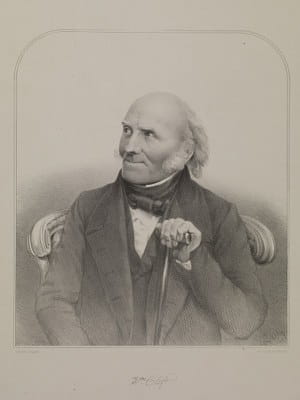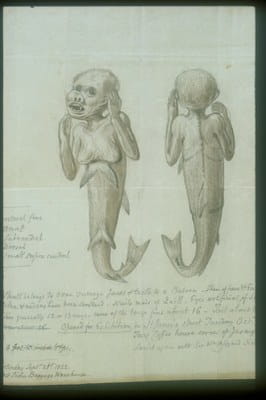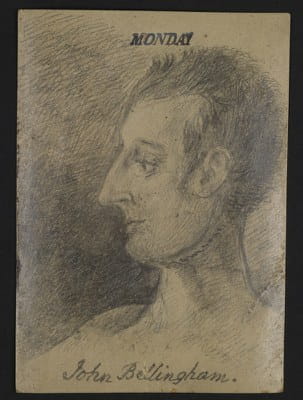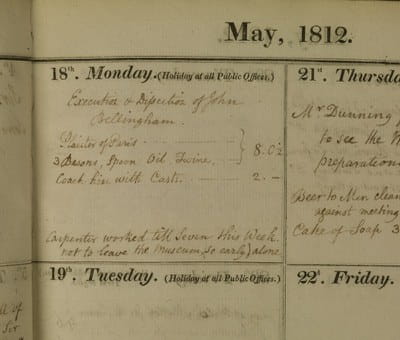Happy Birthday, William Clift! (14/2/1775–20/6/1849)
12 Feb 2016
Geraldine O’Driscoll

After Hunter’s death in 1793, his vast collection was offered for sale to the government. At the request of Hunter’s widow, Clift looked after the collection in Leicester Square until 1799, when the government finally purchased it and asked the Company of Surgeons to manage it. Clift was appointed as conservator of the Hunterian Museum and under his care the collections were greatly enlarged and enriched.
Fearing for the survival of Hunter’s papers, Clift copied many of Hunter’s unpublished manuscripts. His fears were well founded, as in 1823 Hunter’s brother-in-law, Sir Everard Home, destroyed many of the original manuscripts. Due to Clift’s diligent transcriptions Hunter’s legacy survives.
Clift was held in high esteem for his illustrative skills and was called upon by naturalists, anatomists and others to produce illustrations for their publications. This skill is evident in the “Sketches of Heads of Murderers” (those bodies which were dissected at the College), which include that of John Bellingham (above, left), the infamous assassin of Prime Minister Spencer Perceval in 1812. Clift’s diary (1811-1842) also records the execution and dissection of Bellingham (above, right).

Clift devoted his life to maintaining Hunter’s museum in the best possible state whilst bearing Hunter’s ideals in mind. He retired from the museum in 1842 and died on 20th June 1849.
Geraldine O’Driscoll, Library & Archives Assistant


